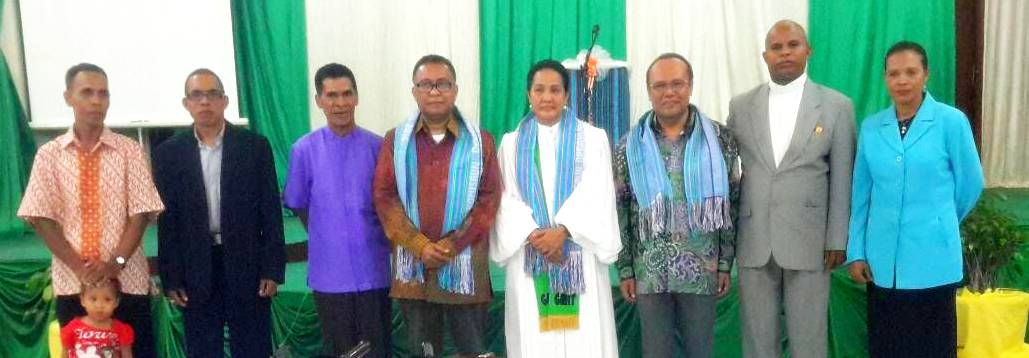CCA greets the Seventh General Assembly of the Protestant Church in Timor-Leste

The Christian Conference of Asia has greeted the delegates of the Seventh General Assembly of the Protestant Church in Timor-Leste (IPTL), the only member church of CCA in Timor-Leste.
The General Assembly is being held at the Hosanna Church in Dili, the capital city of Timor-Leste, from 4 to 8 July on the theme “Peace Be With You”, which is translated into Timor-Leste’s native language Tatum as “Dame HelaHoIni”.
In a message addressed to the delegates of the General Assembly, the General Secretary of CCA Dr. Mathews George Chunakara conveyed the regional ecumenical organisation’s greetings and best wishes for the successful deliberations of the General Assembly.
The message of CCA General Secretary stated that the “theme you have chosen is pertinent, which has profound meaning and significance in today’s global, Asian and your own local contexts. The message of peace conveyed by Jesus to his disciples still reminds us that we cannot become one with the Lord unless we recognize him in the people and communities around us”.
The message further stated that “as the magnitude of the denial of peace and justice continues, the scale of unrest is increased in our societies. The mounting reactions surfaced in various forms as results of consternation where a vast number of people experience all forms of injustices, hence peace is ultimately absent. Asia is not an exception to such a tendency. This situation warrants us to be stronger in our faith and vigilant in today’s world where we are called to be peace makers in every such situation”.
The General Secretary’s message also reiterates CCA’s commitment to accompany the people and communities in Timor-Leste to move beyond conflict and build peace through a new programme CCA envisioned with a focus on ‘Building Peace and Moving beyond Conflicts.
CCA is represented at the assembly by Dr. Alphinus Kambodjie, a programme coordinator, and he read out the message of greetings at the opening session.
Timor-Leste (originally known as East Timor) became independent in 1999 after people voted for independence in a U.N-supervised referendum, but the road to freedom was long and traumatic as the people faced some of the worst atrocities of modern times in their struggle for self-determination, which continued for a quarter of a century. More than 200,000 people - a quarter of the population – were killed by fighting, famine and disease that follow the invasion and during Indonesian occupation from 1975 to 1999. The country was internationally recognised in 2002.
The leaders and members of the Protestant Church in Timor-Leste have been involved with peace and reconciliation in the country for a long time. CCA has been accompanying the people and churches in Timor-Leste together with the World Council of Churches (WCC) throughout the period of people’s struggle for their right to self-determination and resistance against gross and systematic violations of human rights.
The General Assembly of the Church, which will conclude on 8 July, will elect new leadership to lead the Synod of the church for next four years.










